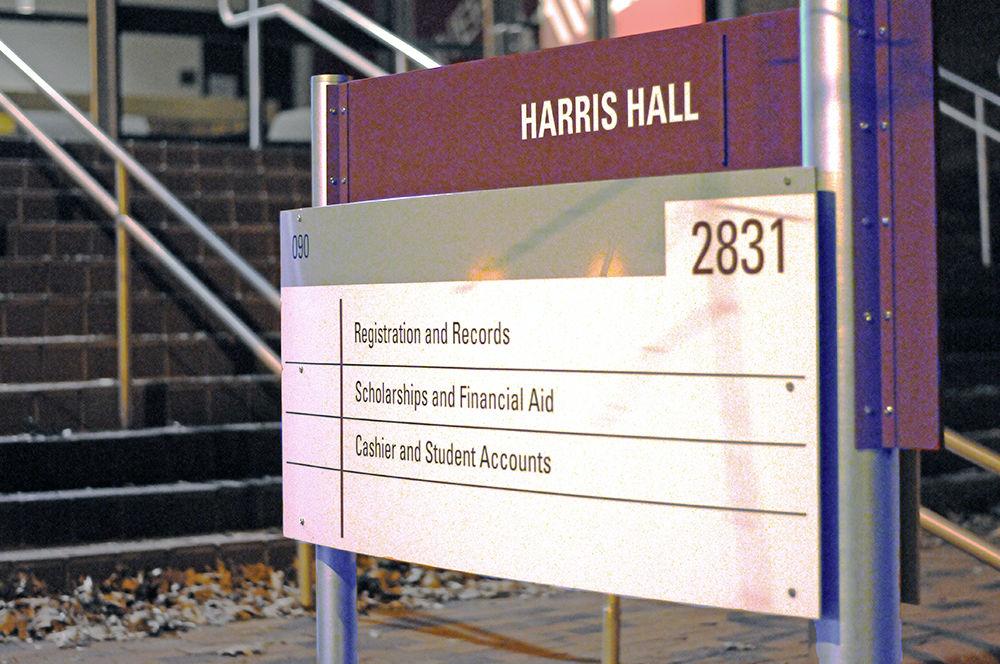Although the priority deadline for the Free Application for Federal Student Aid (FAFSA) passed on March 1, students are still able to receive financial aid to help pay for their college educations.
The NC State Financial Aid office helps students find financial assistant so they may pay for their college careers. Krista Ringler, the director of scholarships and financial aid at the NC State Financial Aid office, said the average total aid given to undergraduate students who applied for financial aid for the 2017-18 academic year was $12,419. For the 2016-2017 academic year, NC State gave out over $213 million in financial aid to undergraduate students.
Ringler explained that the amount of aid given to students depends on several factors.
“There is a cost of attendance that is established for students, and that’s a number we determine like what tuition and fees are, what room and board is, what books are, housing and meals: all of those things come together to determine a cost of attendance,” Ringler said. “When a student completes a FAFSA, there is a number that is the output calculation from the FAFSA and that is the EFC, or estimated family contribution. We subtract the EFC from the cost of attendance and the difference is the student’s financial need.”
Ringler said that the office also determines what form of financial aid a student is eligible to receive; however, one of the biggest determining factors is timing.
“We encourage students to complete their FAFSA early because scholarships and grants do go to students on a first-come, first-served basis, so money will runout,” Ringler said. “The earlier students apply the better.”
Students apply for financial aid through FAFSA, but are able to seek help and guidance through NC State’s financial aid counseling staff. Michelle Thompson, senior associate director of the Office of Scholarships and Financial Aid, said that the counseling staff is there to assist students in day-to-day financial aid needs.
“We’ll answer a variety of students who come into our office via walk-in or telephone call,” Thompson said. “On a general basis, we’re working with awarding students, making sure their financial aid disperses on time and following up with them if there are any issues that are preventing their aid or if their aid has changed for some reason.”
Thompson also emphasized the importance that financial aid plays to students.
“There’s many students… who wouldn’t have been able to complete a degree without financial assistance,” Thompson said. “[It’s important] to be able to give the students the resources they need, to actually know what they need to know to apply for financial aid, to get the funds that are available to them so they can actually get the degree.”
Students, like Nick Orman, a third-year studying sports management and communication, also agree that financial aid is a crucial aspect to obtaining a college education.
“College is expensive,” Orman said. “It’s nice that as students we can have financial assistance to go to a university and get a degree and then use that degree to further [our] careers.”
Orman, who has applied for financial aid in the past, said that he thinks the application process is long, but important to receiving financial help.
“I think there’s a lot of money being tossed around, so it’s nice that it’s a little more difficult and challenging because we work hard for school,” he said. “So, it’s important to go through the process because it’s a meaningful thing to do.”
Even though the priority deadline for FAFSA has passed, students are still able to apply for financial aid throughout the year and according to Ringler, the priority deadline exists to encourage students to apply for aid early.
“The FAFSA is year specific, so students complete the appropriate year’s FAFSA, but as long as we are in the academic term that the student is seeking financial aid for, and that term has not ended, the student can still apply for financial aid throughout the year,” Ringler said. “It optimizes their eligibility for things like need based grants, if they apply early.”
Ringler encouraged students to apply for financial aid as soon as possible if they have not already.
“If you have not yet applied for financial aid and intend to, you should do that as soon as possible,” Ringler said. “If you have applied for financial aid, if you’re a current student, [you] should pay attention for any communications from our office because sometimes additional documentation is needed and students want to respond to that information as early as possible so again we can optimize the amount of funding that student qualifies for.”
Students can receive more information about their financial aid options on NC State’s Financial Aid website.








